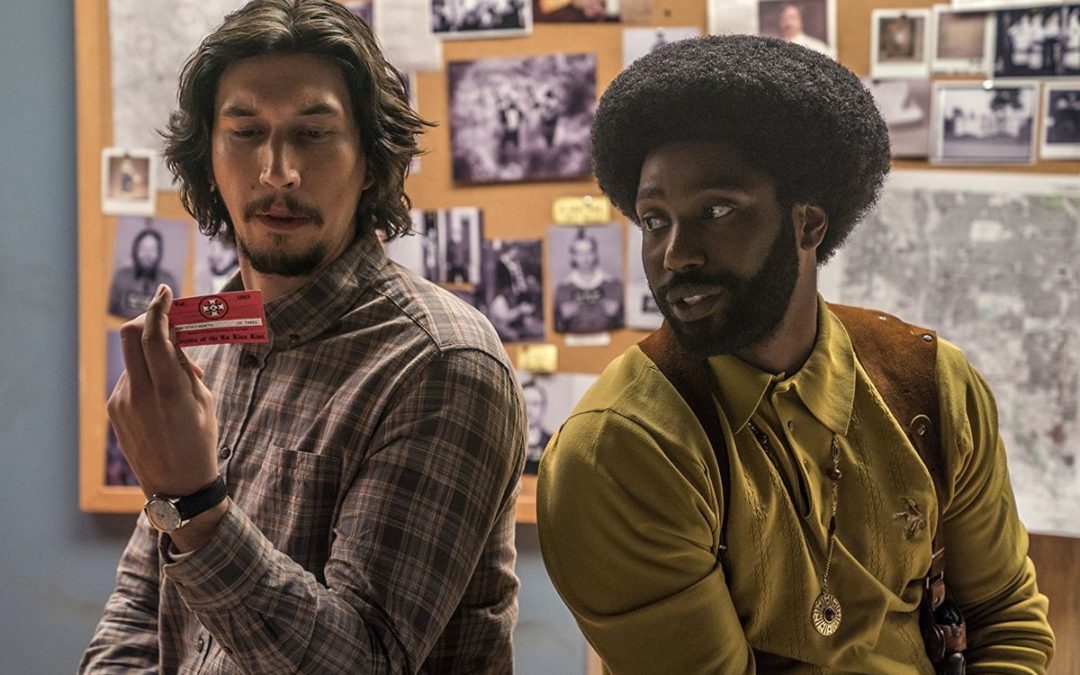I am going to follow up my Da 5 Bloods post by also discussing Spike Lee’s most notable previous works. For this film, I’ll start by copying and pasting the Facebook status update I wrote after watching it in the theater months before I started this blog:
- This is the best movie of 2018. I realize we’re only at the start of the season of awards contenders but the bar has been set exceptionally high for upcoming films. [Later I decided the movie I inaugurated the blog discussing was the best of 2018]
- Spike Lee has not unjustly been accused of race-baiting in the past and I’ll never fully respect him after that Spike TV lawsuit years ago. However, the conservatives who criticized him at the time Do the Right Thing came out by claiming we’re in a post-racial society have TO SAY THE LEAST been proven wrong in recent years and this was an incredibly timely film. Plus the fact that the last image of the film paid tribute to Heather Heyer showed that Lee ultimately wants us all to live in peace.
- When I watched Interstellar it was surreal for me to see Topher Grace looking like an adult for the first time. I’m flabbergasted at how four years LATER he can look like Eric Forman again. That did make for inspired casting though, because David Duke is unquestionably a dumbass!
Now I’ll add some thoughts:
-The movie was marketed as a comedy, and I can understand if that made it seem like an easier sell. I know my cousin Nitin was one person disappointed that it turned out to be a serious drama, and I’m sure he wasn’t the only person. Still, if you’re okay with it being a very intense drama (bordering on a thriller) it’s fantastic.
–BlacKkKlansman couldn’t have addressed all the issues it raised if it were any less serious. While laughing at the KKK is something most of us can enjoy (of course we do currently have a president endorsed by them…) even a black (no pun intended) comedy is limited in the sort of social change for which it can successfully advocate. The most powerful scene in this film doesn’t directly involve the Klan, but rather features the black main character Ron (who had been on the phone with David Duke under a fake white identity) chastising his white colleague Flip (who had actually been playing that fake person at Klan meetings) for wavering in his commitment to this undercover project. Ron points out that the Klan also hates Jews like Flip, to which Flip points out that his religion is barely a part of his life. This highlights what Malcolm X often angrily spoke out against (and so did Martin Luther King during his later radical years) about how the real threat to black progress is white moderates, who recognize the injustice but don’t want to give up their own comforts to battle it.
-Hollywood unfortunately gave ammunition to social justice warriors who argue The Oscars are too white when Best Picture went to the latest “White Savior” movie, Green Book, over BlacKkKlansman (which admittedly, was not the favorite, but the frontrunner Roma was also minority-driven).
Personally, I loved Green Book but agree it was fluff and that BlacKkKlansman was a far superior film. I’m glad Green Book won, though, because it led to that above video and to some savage Tweets: “30 years later Spike Lee lost to Driving Miss Daisy again” and “Don’t worry, Spike. Someday you’ll learn how to make a movie about racism.”
Bottom line: A magnificent film!
Up Next: More “40 Acres and a Mule” (Lee’s production company)
Questions? Comments? Feel free to post below. Don’t forget to follow us on Facebook and subscribe to us on YouTube!
%

Recent Comments